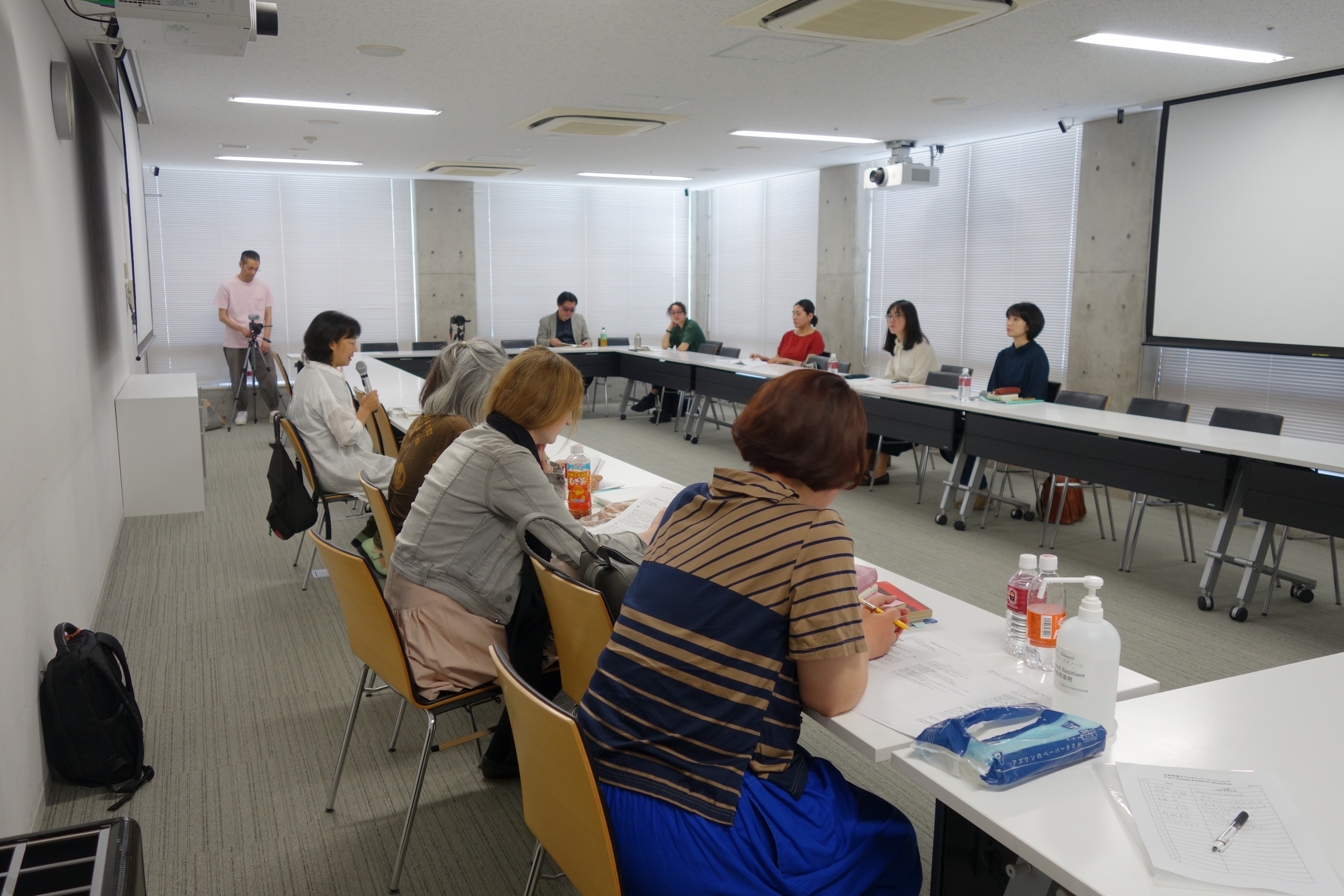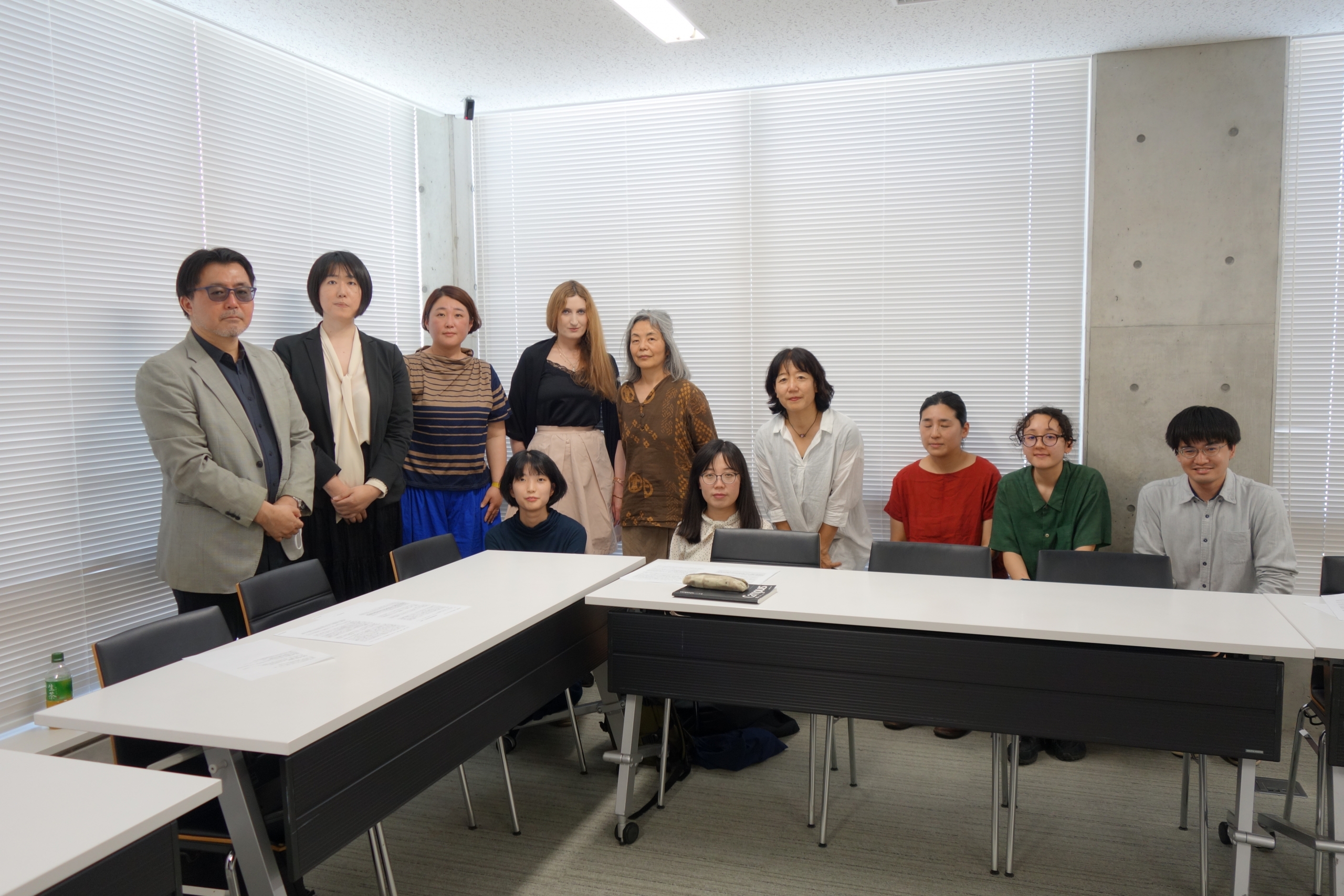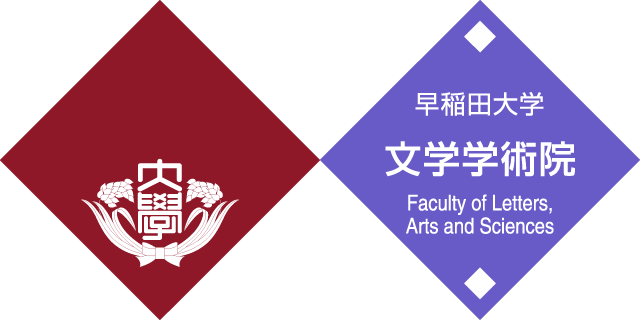- News
- Event Report: AY2023 Yoko Tawada Academic Workshop
Event Report: AY2023 Yoko Tawada Academic Workshop

- Posted
- Mon, 26 Jun 2023
This year, the event welcomed Ms. Yoko Tawada again, with two graduate students presenting their research and a viewing of Tawada’s documentary film. The moderator was Miho Matsunaga and the commentator was Associate Professor Arisa Iwakawa.

First, Yuka Tsuchiya, a master’s student at Hitotsubashi University, gave a presentation titled “Spinning top and Narcotics: On Opium for Ovid.” Tsuchiya pointed out that the 22 women in Opium for Ovid are all “beings to be seen.” Tsuchiya further noted that the women often spin, spinning leads to euphoria and trance, and euphoria is also involved in escaping the dominant–subordinate relationship. In response, comments were made on the women’s “dark” situation and the unexpected “bright” atmosphere of the work, the ambiguous relationship between the first-person narrator and the women, and the existence of the beings watching them.
Next, Yanan Xing, a doctoral student at the University of Tokyo, gave a presentation titled “Representation of Eggs in Yoko Tawada’s Early Works: Focusing on Kakato wo nakushite and Museiran.” In Kakato wo nakushite, the protagonist carries in her bag boiled eggs. And Museiran is an unfertilized egg, which never gives birth to a new life. The boiled egg can be interpreted as a symbol of the heterogeneity of the narrator, who came from a foreign country for a paper marriage. Xing pointed out that the eggshell is a surface layer in contact with others like human skin, is like a self-protective wall, and is one of components of personal identity. In Museiran, the relationship between the woman and the girl was analyzed. Along with suggestive expressions of the woman’s childbirth, Xing pointed out that the woman’s writing is inherited by the girl, and that the girl receives a new life at the same time the woman’s house becomes an empty shell. Xing also noted the images of transformation and alterity in Tawada’s works and the potential of language for animism.

Lastly, Hyejeong Son introduced her research footage shot in various parts of the world over the five years she spent as a graduate student at the University of Tokyo. These are precious images of Tawada’s performances, lectures, and workshops in India, Thailand, Myanmar, the U.S., Germany, Japan, and other countries, and Son explained how she shifted from research on “voice” and “reading” to recording with images. Son also showed materials such as programs and pamphlets of the events at the time of filming. A question-and-answer session about collaboration at the event was also held. The workshop was very productive, with a high level of interest from the audience and lively discussions. Participating students commented: “For students studying Tawada based at Waseda, it was a valuable opportunity to present and interact with each other” and “As a student studying Yoko Tawada, I found this workshop a very valuable opportunity. Tsuchiya’s and Xing’s presentations were very interesting, and it was also very interesting to hear Yoko Tawada’s own reaction. In addition, the screening of Hyejeong Son’s ‘Yoko Tawada: Record of a Traveling Voice’ allowed me to rethink Tawada’s position and activities as a global artist through the form of video. I am once again glad to have been able to attend this event.”

Event Overview
- Date and time: May 17, 2023, 16:30 – 19:00
- Venue: Conference room 10, Bldg. 33, Toyama campus, Waseda University
- Commentator: Arisa Iwakawa (Associate Professor, Waseda University)
- Moderator: Miho Matsunaga (Professor, Waseda University)
- Tags
- Event Reports
